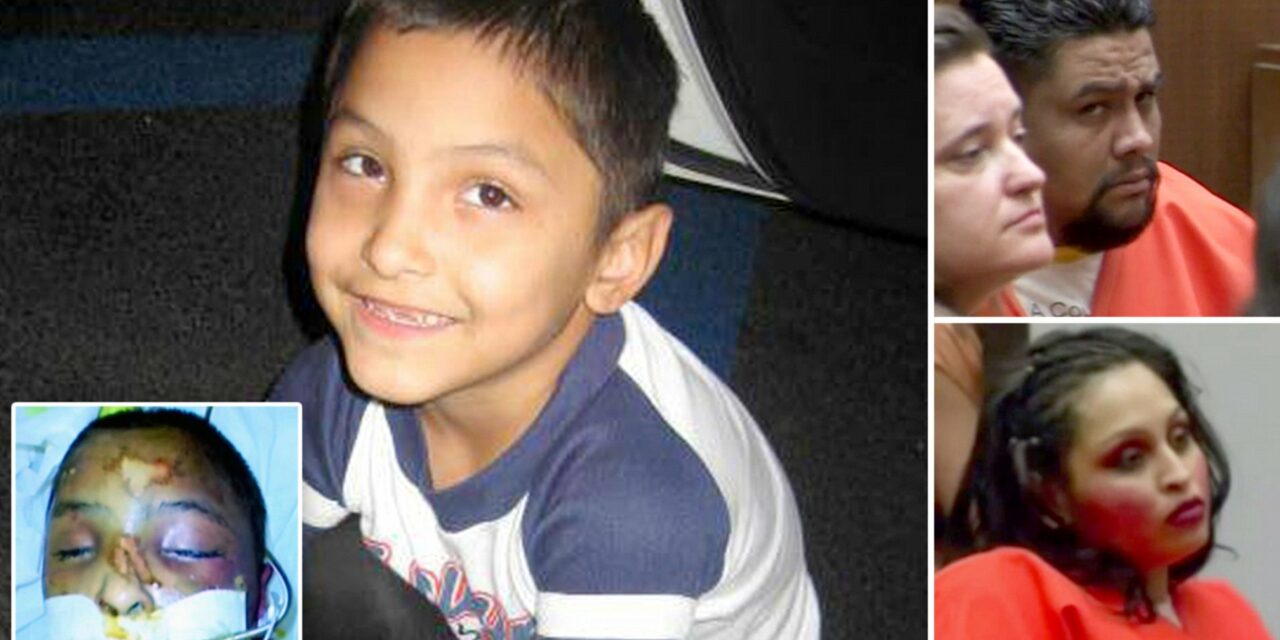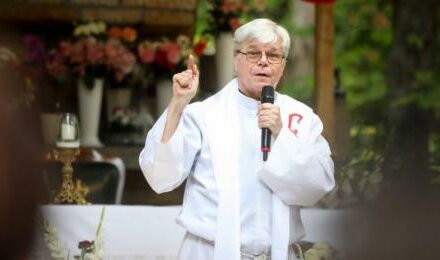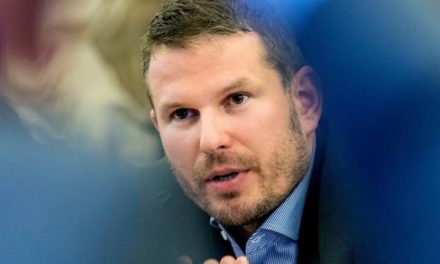Gabriel left this world on May 23, 2013, at the age of eight.
The day before, ambulances transported him to the emergency department of Palmdale in Los Angeles County, where they fought for his life for a long time, then he was transferred to a children's clinic, fell into a coma, and was finally taken off the machines after being declared brain dead.
According to those present, there was no part of his body that did not bear extreme injuries, confusing even those who worked on the case with decades of professional experience.
His story is revealed in the six-part documentary series The Trials of Gabriel Fernandez , available on Netflix.
During the last eight months of his life, Gabriel lived with his mother, her boyfriend, and his 11-year-old sister and 12-year-old brother. At the time of his birth, Pearl did not claim her third child, so her son was raised by her homosexual cousin and her partner, until he was four years old, when the couple were accused of child molestation. Neither this nor the opposite was certain, but Gabriel went to live with his grandparents, and then his mother took him in with his two brothers; as it turned out later, not without interest: the woman was motivated by state support. That's when the little boy's fate was sealed, and his chosen ordeal, studded with brutal tortures, began. Why he became the target of the two adults is not revealed in the film, nor probably in the trial held in 2017, but it is a fact that he was seen as a scapegoat, and the complications of the injuries caused by the tortures that he was forced to suffer every day eventually led to his death.
The forensic pathologist said in his court testimony that the autopsy lasted 48 hours, which is an unprecedentedly long time, but that was all that was needed to manage all the injuries.
Gabriel's body was covered in bruises from head to toe, several of his ribs were broken, then welded together, then broken again, making every breath painful for him. There were strangulation marks on his throat, and his ankles and fingers were swollen. Two projectiles from an air pistol were also found in his body, cigarette and other burn marks on his face and scalp, his teeth were knocked out, and his hair was pulled out. Litter contaminated with cat feces was found in the stomach. The complete atrophy of his thymus gland indicated the stress and mental agony he had suffered.
His skull was crushed like puffed rice
- recalled one of the nurses.
Brian Knappenberger's film does not repeat itself, does not exaggerate, does not suggest - and does not operate with other effect-seeking elements either. You don't need to, because Gabriel's tragedy surpasses even our worst nightmares. He doesn't politicize, he doesn't dig trenches, he just tells the story. A story of systematic child torture, and finally child murder, which we cannot even imagine. Because it can't be. Neither understand nor process.
For months, Gabriel spent the nights and sometimes the days in his mother's bedroom closet. Sometimes a sock was stuffed in his mouth, which was tied with a scarf, as well as his hands and feet. They didn't even let him out to do his work, if he peed under himself, he had to clean it up. As his brothers say
cleaning the cats' apples was also his job, and if he didn't do it properly, his 188 cm tall and 122 kg stepfather fed it to him.
Isauro Aguire, the family muscle, committed the majority of the tortures, beatings, and finally the murder, but the spiritual driving force was Pearl Fernandez, the mother (?), and her life partner, like a hammer in the hand, "merely" implemented the demonic ideas of the manipulative woman .
The series methodically unravels the sprawling, bureaucratic maze of the supervisory bodies operating in Los Angeles County, points out the amazing - and still uncorrected - system errors of the family support and child protection services, the blood-curdling, yet unpunished omissions of social workers, police and other authorities, in short, everything , but most of all for everyone who had proven knowledge of the serial, clearly visible abuse of the little boy.
Their silence served as so many complicit milestones on Gabriel's journey to death.
At the same time, we don't feel that the goal is to find a scapegoat, the film rather encourages constructiveness, and the ending is also moderate: it doesn't promise vain hopes, and it doesn't sell swag.
The deputy prosecutor, the representative of the prosecution, plays a central role in the series, his personality makes it credible from the first moment, and he reveals his own childhood traumas in such a way that his honesty and conscientious work become indisputable. Through his lens, we understand Gabriel's real situation, how the boy's desperate helplessness, tormented by physical and mental tortures, danced with his desire for a mother's love.
The judge's sentences after the sentencing are worth quoting verbatim, the ones he addressed to Pearl and Isauro, who showed no sign of guilt or remorse:
"During those twenty years, I have made many judgments, and I usually do not express an opinion on cases. But I learned a lot about this case. I got through it. I heard the evidence. I've seen the coroner's photos, the severe injuries, all of which almost demand that I speak up. The pain this child must have gone through is unimaginable, from what I heard, Gabriel was a kind, loving person who only wanted love. And, well… it was said that he was treated like an animal, but that's not true. Even animals take care of their young. I seriously wish you both wake up in the middle of the night and think about the injuries you have caused this poor seven year old and don't let yourselves rest. I rarely say that. Yours will be a different kind of torture because you will not have physical pain. I don't know if they can. But this is what I wish for you.”
It's hard to add anything to that. The usual barrage of clichés – shocking, upsetting, shocking, overwhelming – is not worth wearing out either, because what else could one feel after facing Gabriel's torture and beating to death? The mouth of the stomach tightens, the sigh breaks out. Your eyes are wet. You're freezing. You don't feel your heart beating, your chest inside is like a scorched wasteland. And that's when you face the most terrible reality, that's when you realize why you feel the way you do. More specifically, why don't you feel anything. Then you realize that it doesn't matter what the verdict is, the further fate of the murderers is uninteresting, it doesn't matter whether they are imprisoned for the rest of their lives or executed. And it really doesn't matter. Because in their case, even the death penalty cannot provide satisfaction.
Featured image: Daily Mail












